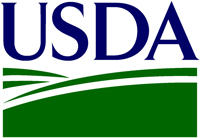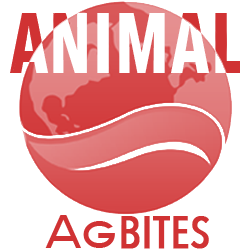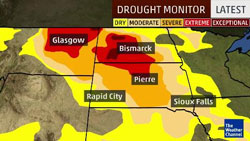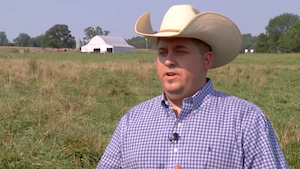 The government of Japan says rising imports of frozen beef in the first quarter of the Japanese fiscal year (April-June) have triggered a safeguard, resulting in an automatic increase in Japan’s tariff rate under the WTO on imports of frozen beef from the U.S. Exports of beef and beef products to Japan totaled $1.5 billion last year, making it our top market.
The government of Japan says rising imports of frozen beef in the first quarter of the Japanese fiscal year (April-June) have triggered a safeguard, resulting in an automatic increase in Japan’s tariff rate under the WTO on imports of frozen beef from the U.S. Exports of beef and beef products to Japan totaled $1.5 billion last year, making it our top market.
The increase, from 38.5 percent to 50 percent, will begin August 1, 2017 and last through March 31, 2018. The tariff would affect only exporters from countries, including the U.S., which do not have free trade agreements with Japan currently in force.
U.S. Secretary of Agriculture Sonny Perdue said, “I am concerned that an increase in Japan’s tariff on frozen beef imports will impede U.S. beef sales and is likely to increase the United States’ overall trade deficit with Japan. This would harm our important bilateral trade relationship with Japan on agricultural products. It would also negatively affect Japanese consumers by raising prices and limiting their access to high-quality U.S. frozen beef. I have asked representatives of the Japanese government directly and clearly to make every effort to address these strong concerns, and the harm that could result to both American producers and Japanese consumers.”
 National Cattlemen’s Beef Association (NCBA) President Craig Uden said, “We’re very disappointed to learn that the tariff on frozen beef imports to Japan will increase from 38.5 percent to 50 percent until April 2018. Japan is the top export market for U.S. beef in both volume and value, and anything that restricts our sales to Japan will have a negative impact on America’s ranching families and our Japanese consumers. NCBA opposes artificial barriers like these because they unfairly distort the market and punish both producers and consumers. Nobody wins in this situation. Our producers lose access, and beef becomes a lot more expensive for Japanese consumers. We hope the Trump Administration and Congress realize that this unfortunate development underscores the urgent need for a bilateral trade agreement with Japan absent the Trans-Pacific Partnership.”
National Cattlemen’s Beef Association (NCBA) President Craig Uden said, “We’re very disappointed to learn that the tariff on frozen beef imports to Japan will increase from 38.5 percent to 50 percent until April 2018. Japan is the top export market for U.S. beef in both volume and value, and anything that restricts our sales to Japan will have a negative impact on America’s ranching families and our Japanese consumers. NCBA opposes artificial barriers like these because they unfairly distort the market and punish both producers and consumers. Nobody wins in this situation. Our producers lose access, and beef becomes a lot more expensive for Japanese consumers. We hope the Trump Administration and Congress realize that this unfortunate development underscores the urgent need for a bilateral trade agreement with Japan absent the Trans-Pacific Partnership.”









